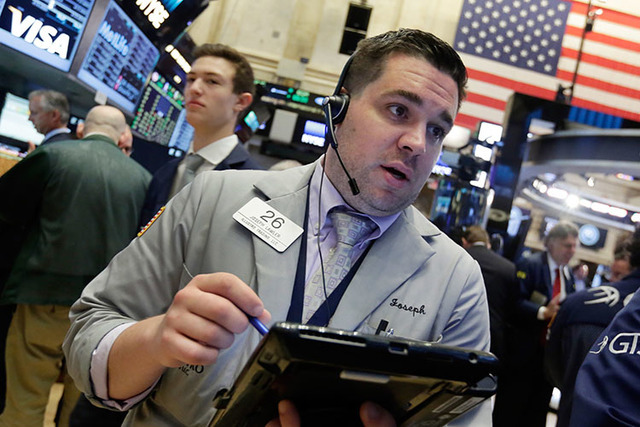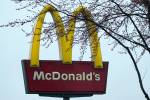Dow Jones industrials close at a record
NEW YORK — The stock market reached another milestone Tuesday as the Dow Jones industrial average closed at a record high.
A day earlier, the broader Standard & Poor’s 500, a widely used benchmark for index funds, also reached a record-high close. Both indexes beat peaks set in May 2015.
The Dow, which is made up of just 30 stocks, is an older and better-known barometer of the market than the S&P 500, but professional investors generally pay much closer attention to the S&P 500.
The Dow rose 120.74 points, or 0.7 percent, to 18,347.67. That is 35 points higher than its previous closing high set on May 19 last year.
The S&P 500 gained 14.98 points, or 0.7 percent, to 2,152.14. The Nasdaq composite rose 34.18 points, or 0.7 percent, to 5,022.82.
The Nasdaq is still lagging the other two main U.S. stock market indexes. The index, which is heavily weighted with technology and biotech stocks, erased its losses for the year on Tuesday.
The Dow and S&P 500 are each up 5.3 percent for 2016, having roared back following a big drop in January and early February. The S&P has soared 17.7 percent since reaching a low of the year of 1,829 on Feb. 11.
Investors continued to show an appetite for taking on risk. The biggest gainers included energy companies, which have been benefiting from a recovery in the price of oil, materials companies and banks.
Financial companies, which have lagged the market this year, have been rising in recent days as long-term interest rates move higher in the bond market. Higher rates mean banks can make more money from lending. Citigroup gained 93 cents, or 2.7 percent, to $43.44.
Despite recent increases, however, bond yields remain near historic lows, a worrisome sign to many analysts. Just last week the yield on the 10-year Treasury note touched an all-time low. Bond yields tend to fall when demand for bonds rises, which can indicate that investors are seeking safety.
“I wish we can be celebrating, but it’s a little disconcerting,” said Rob Bartenstein, CEO of Kestra Private Wealth Services. “You’ve got government bonds at historical lows and equity markets at historical highs. That’s not something you see at the same time. … I feel underinvested, but I’m not willing to chase stocks.”
Sectors that investors tend to favor when they’re nervous, including utilities, phone companies and makers of consumer staples, all fell as investors moved money out of lower-risk assets. Bond prices also fell sharply, sending yields higher.
Aluminum maker Alcoa kicked off the second quarter earnings season on a positive note by reporting revenue and profit that beat Wall Street expectations. The stock jumped 55 cents, or 5.4 percent, to $10.69. Earnings for companies in the S&P 500 are expected to fall compared to the year ago period, but then rise in the next quarter.
Seagate Technology surged $5.26, or 21.8 percent, to $29.35 after forecasting strong sales. It also announced it will cut 6,500 jobs, about 14 percent of its total.
Benchmark U.S. crude added $2.04 to close at $46.80 a barrel in New York. Brent crude, a standard for international oil prices, rose $2.22 to $48.47 a barrel in London. In other energy trading in New York, wholesale gasoline rose 5 cents to $1.43 a gallon, heating oil rose 5 cents to $1.46 a gallon and natural gas rose 3 cents to $2.73 per 1,000 cubic feet.
U.S. government bond prices fell. The yield on the 10-year Treasury note rose to 1.50 percent from 1.43 percent. The yield plunged last week as low as 1.32 percent, an all-time low, according to Tradeweb.




























